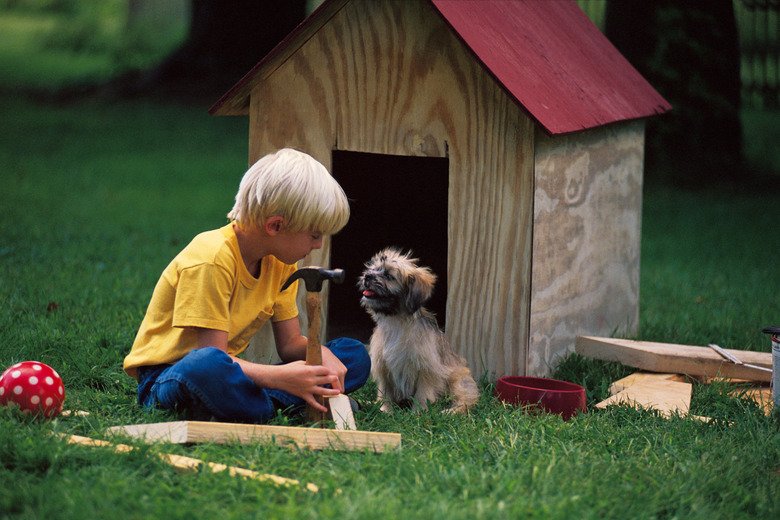Symptoms Of A Blocked Bowel In A Dog
While consumption of foreign objects is a major cause of canine bowel blockage, it's not the only one. Other possibilities include tumors or hernias. Obstruction can result from part of your pet's small intestine slipping into the next section — known as intussusception — or a case of intestinal twisting, or torsion. If your dog exhibits any symptoms of a blocked bowel, take him to the veterinarian immediately for diagnosis and treatment. Depending on the cause of the obstruction, he might require surgery to save his life.
Partial or Complete Obstruction
Partial or Complete Obstruction
Whether your dog's bowel is completely or partially blocked depends primarily on the cause of the obstruction. If he consumed a relatively small object that didn't pass through his gastrointestinal system, he's likely to suffer partial blockage. If he ate a large item — especially something round — a complete blockage more often occurs. Symptoms between a partially or completely obstructed dog differ. While both require veterinary treatment, the latter is always an emergency. Your veterinarian will perform an X-ray or ultrasound on your dog's abdomen to ascertain exactly what's causing the obstruction.
Partial Obstruction Symptoms
Partial Obstruction Symptoms
Partial obstruction symptoms often don't seem as severe initially, as the dog can sometimes manage to keep some food down and defecate. Common symptoms include diarrhea, which may or may not contain blood, weight loss and vomiting. If your dog experiences any type of gastrointestinal upset for more than a short time, call your vet to get to the bottom of it.
Complete Obstruction Symptoms
Complete Obstruction Symptoms
A dog with complete blockage experiences vomiting and might stop eating. He becomes weak and lethargic. He's obviously experiencing abdominal pain, and might not want his stomach touched. Extreme restlessness, with constant getting up and down or pacing is another possible reaction to abdominal pain. Because your dog can't keep food and water down, he becomes dehydrated. He stops defecating or strains when attempting to pass stool. Depending on the type of the blockage and the length of time the bowel is obstructed, the dog could go into shock.
Other Clues
Other Clues
If you find the remains of a nonfood item your dog has partially eaten, suspect that the rest of it could be in his gastrointestinal tract. Keep a close eye on what comes out during his constitutionals. If his feces contains remnants of the object, take your dog to the vet even if he isn't showing any bowel blockage symptoms. If canine favorites go missing in your house — such as socks, tennis balls, sanitary napkins or diapers — assume your dog ate them, and call your vet for advice.
Always check with your veterinarian before changing your pet's diet, medication, or physical activity routines. This information is not a substitute for a vet's opinion.
